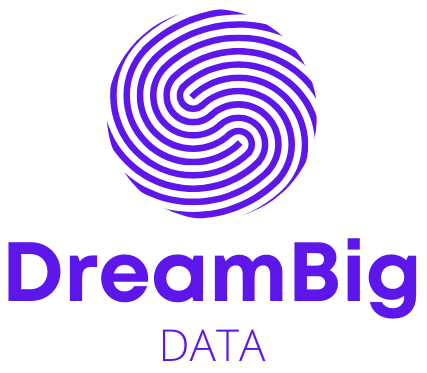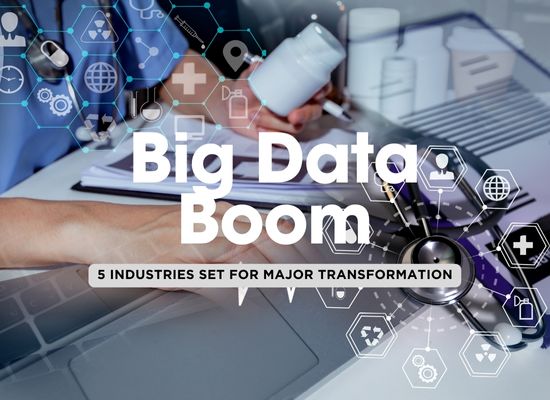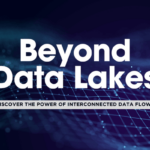Big Data isn’t just a buzzword — it’s a game-changer. As companies continue to collect, analyze, and act on mountains of data, entire industries are being reshaped in ways we never expected. From personalized healthcare treatments to predictive shopping trends, Big Data is driving smarter decisions, faster results, and bigger profits. But the real shake-up is just getting started. By 2025, certain industries will be almost unrecognizable thanks to the power of data. Let’s take a closer look at the first industry that’s about to be transformed. Spoiler alert: It’s going to impact you more than you think.
1️⃣ Healthcare: Personalized Medicine Powered by Big Data 🏥💉
Imagine going to the doctor and, instead of guessing which medication might work, they prescribe a treatment 100% customized to your DNA, lifestyle, and health history. This isn’t science fiction — it’s the future of healthcare, thanks to Big Data.
- How Big Data Is Transforming Healthcare:
Big Data is turning traditional healthcare on its head by allowing doctors, researchers, and hospitals to analyze massive amounts of patient data in real time. This means quicker diagnoses, better treatment options, and customized care. Every doctor visit, medical record, and wearable fitness tracker is adding to a global pool of health data that AI and machine learning can analyze. The result? Personalized medicine. Treatments will be tailored to your specific needs, not just “what works for most people.” - Real-World Example:
Take cancer treatment as an example. In the past, oncologists would recommend chemotherapy based on general protocols. But with Big Data, doctors can analyze the patient’s specific genetic makeup to create a treatment plan tailored to their body’s unique biology. Companies like Tempus and Flatiron Health are already using Big Data to create precision oncology treatments that are more effective and less harmful. - What It Means for You:
- Faster Diagnoses: Instead of waiting weeks for test results, doctors can get instant insights from AI-driven diagnostic tools.
- Customized Treatments: Your treatment won’t be a “one-size-fits-all” approach. It will be specific to you — your genetics, health history, and lifestyle.
- Lower Healthcare Costs: Fewer misdiagnoses, less trial-and-error treatment, and more efficient care mean you spend less money on unnecessary tests and medications.
- Pro Tip:
Keep an eye on healthcare startups like 23andMe and GeneDx, which are making genetic testing affordable for everyday people. The more people have access to their own health data, the faster Big Data will drive advances in personalized medicine.
Why This Industry Is About to Be Transformed:
Healthcare is shifting from reactive care to predictive care. Instead of waiting to get sick, Big Data will help doctors catch issues before they happen. With wearable devices (like Apple Watches and fitness trackers) constantly collecting data, your doctor may soon be able to alert you before you have a heart attack, stroke, or other health emergency. That’s the power of predictive healthcare — and it’s only possible with Big Data.
2️⃣ Retail: Hyper-Personalized Shopping Experiences 🛒🛍️
Imagine walking into a store (or browsing online) and seeing products that feel like they were handpicked just for you. No random ads, no irrelevant product suggestions — just the stuff you actually want. That’s the power of Big Data in retail.
- How Big Data Is Transforming Retail:
Retailers are collecting data on every click, search, and purchase you make. This information is used to create personalized shopping experiences. Big Data allows companies to predict your next purchase before you even know you need it. From suggesting products you’ll actually love to offering personalized discounts, Big Data is giving retailers an edge — and giving customers a more convenient shopping experience. - Real-World Example:
Ever noticed how Netflix seems to “know” exactly what show you’ll want to watch next? Or how Amazon recommends products you didn’t even realize you needed? That’s Big Data in action. Retailers like Target, Walmart, and Shopify are using the same predictive technology to anticipate customer needs. In some cases, companies are even shipping products to regional warehouses before customers order them — so they can offer same-day delivery. - What It Means for You:
- Personalized Product Recommendations: Websites and apps will suggest products based on your past purchases, searches, and even your online behavior (yes, they’re watching).
- Exclusive Discounts and Offers: Retailers use Big Data to target specific customers with deals. If you frequently buy skincare products, don’t be surprised if you get a 20% off coupon for moisturizer.
- Faster, Smarter Shopping: Faster shipping, personalized suggestions, and efficient search results mean you’ll spend less time looking for what you need.
- Pro Tip:
If you want to get the best personalized discounts, join store loyalty programs. Companies like Sephora and Target track customer behavior through loyalty cards, which means they’ll send you exclusive coupons and deals based on your buying habits. It’s a win-win.
Why This Industry Is About to Be Transformed:
In 2025, shopping will feel more like a personal assistant than a random store visit. Retailers will know what you need before you need it, and same-day delivery will become the norm. With AI-driven personalization, you’ll be able to walk into a store, scan a QR code, and see a list of suggested items tailored just for you. Shopping smarter, not harder, will be the new normal.
3️⃣ Finance: Smarter Investments and AI-Powered Money Management 💰📈
Imagine having a personal financial advisor that never sleeps, never makes emotional decisions, and constantly analyzes market trends — all in real time. That’s where Big Data is taking the finance industry. From AI-driven robo-advisors to fraud detection systems, Big Data is making money management faster, smarter, and far more accurate.
- How Big Data Is Transforming Finance:
In the past, investment decisions were based on human analysis, experience, and gut instincts. But thanks to Big Data, financial institutions can now analyze millions of data points in seconds. From stock prices to social media sentiment, data-driven algorithms are identifying investment opportunities, predicting risk, and recommending financial strategies with pinpoint accuracy. Banks and fintech companies are also using Big Data to detect fraud, prevent cybercrime, and offer personalized financial advice. - Real-World Example:
If you’ve ever used apps like Robinhood, Wealthfront, or Acorns, you’ve already experienced Big Data in finance. These platforms analyze your spending habits, savings goals, and risk tolerance to create personalized investment portfolios. Meanwhile, traditional banks like JPMorgan Chase and Goldman Sachs are using Big Data to detect fraud, predict market crashes, and manage global investments. - What It Means for You:
- AI-Driven Investment Advice: Robo-advisors can help you invest smarter by automatically adjusting your portfolio based on real-time market changes. No more waiting on a human advisor.
- Faster Fraud Detection: Ever had your bank text you about a “suspicious transaction”? That’s Big Data working behind the scenes to catch fraudulent charges in real time.
- Better Loan Approvals: Banks are using predictive analytics to assess your “creditworthiness” — not just from your credit score, but also from your spending habits, bills, and payment patterns. This means faster loan approvals with more personalized offers.
- Pro Tip:
To maximize the benefits of Big Data in finance, consider using a robo-advisor app like Betterment or Wealthfront. These platforms analyze your financial goals, risk tolerance, and timeline to create a custom investment plan — often at a fraction of the cost of traditional advisors.
Why This Industry Is About to Be Transformed:
Financial decisions are shifting from gut instincts to data-driven precision. By 2025, more people will have access to AI-driven financial advisors, and banks will detect fraud before it even happens. You’ll also see more “smart credit” offers — loans and credit cards designed around your unique spending patterns, not just your credit score. With Big Data, finance is becoming more predictive, more personalized, and (hopefully) more profitable for everyone.
4️⃣ Transportation: Smarter Traffic, Self-Driving Cars, and Predictive Logistics 🚗🚚✈️
What if your daily commute could be optimized in real-time to avoid every traffic jam? What if packages could be delivered before you even knew you needed them? Big Data is transforming transportation in ways that make travel faster, safer, and more efficient. From self-driving cars to predictive shipping routes, the transportation industry is about to look very different by 2025.
- How Big Data Is Transforming Transportation:
Big Data allows transportation companies to predict traffic patterns, manage fleet logistics, and power self-driving vehicles. AI algorithms process GPS data, weather forecasts, road conditions, and even public events to create smarter traffic flow systems. Meanwhile, shipping companies like FedEx, DHL, and UPS use predictive analytics to optimize delivery routes and reduce fuel costs. Self-driving cars (like those from Tesla, Waymo, and Cruise) are using Big Data to learn and adapt to real-world driving conditions. - Real-World Example:
Ever wonder how Google Maps knows there’s a traffic jam before you hit it? That’s Big Data. It tracks real-time location data from millions of phones and GPS devices to predict where traffic will form — and suggests alternative routes. Ride-hailing apps like Uber and Lyft use similar models to predict where riders will be and match them with nearby drivers. On the logistics side, Amazon’s “predictive shipping” model allows them to ship products to regional warehouses before you even place an order, ensuring faster delivery. - What It Means for You:
- Faster Commutes: Your GPS app (Google Maps, Waze, etc.) will predict traffic bottlenecks and reroute you in real-time to save time.
- Predictive Deliveries: Packages could arrive at your door before you order them. Retailers like Amazon are already shipping products to nearby warehouses using predictive shopping data.
- Safer Roads: Self-driving cars powered by Big Data will make fewer errors than human drivers, reducing accidents and making the roads safer for everyone.
- More Efficient Shipping: Expect faster package deliveries from FedEx, UPS, and Amazon as their routing systems get smarter.
- Pro Tip:
If you want to stay ahead of the Big Data transportation boom, watch for updates on self-driving cars and AI-driven shipping logistics. Companies like Tesla, Waymo, and Uber Freight are leading the charge, and their innovations could dramatically change how we travel and ship goods.
Why This Industry Is About to Be Transformed:
Faster, cheaper, and safer transportation is coming. By 2025, real-time traffic management systems will make traffic jams less common, self-driving cars will be on more roads, and deliveries will arrive before you even click “buy.” As Big Data continues to power everything from GPS apps to autonomous vehicles, expect fewer delays, safer roads, and faster shipping for everyone.
5️⃣ Education: Personalized Learning and Smarter Classrooms 🎓📚
Gone are the days of “one-size-fits-all” education. Thanks to Big Data, classrooms (both in-person and virtual) are becoming personalized learning hubs where each student gets a tailor-made experience. By 2025, Big Data will enable teachers, schools, and ed-tech platforms to track student progress in real time and customize lessons to meet individual learning needs.
- How Big Data Is Transforming Education:
Big Data allows schools to analyze student performance, attendance, learning behaviors, and engagement levels. AI-based learning platforms can identify where students struggle and recommend specific lessons, videos, or exercises to help them improve. Teachers are no longer guessing who needs extra support — the data tells them exactly where and how to intervene. Platforms like Khan Academy, Duolingo, and Edmodo are already using Big Data to create adaptive learning experiences for students of all ages. - Real-World Example:
Have you ever used Duolingo to learn a language? Notice how it adjusts its lessons based on the words you keep getting wrong? That’s Big Data at work. The app tracks every mistake you make and adapts future lessons to focus on your problem areas. Meanwhile, in physical classrooms, AI tools like DreamBox and Edmentum analyze test scores, homework completion, and participation to create personalized learning plans for students. - What It Means for You (or Your Kids):
- Personalized Learning Paths: Students get customized lessons based on their strengths and weaknesses. No more “one-size-fits-all” curriculum.
- Faster Skill Development: When students get targeted help where they struggle most, they learn faster and retain knowledge longer.
- Real-Time Progress Reports: Parents, teachers, and even students can see their progress in real-time, with clear insights on which subjects need more attention.
- Online Learning Gets Smarter: Platforms like Coursera and edX will continue to use Big Data to customize learning paths for online students, helping them stay engaged and finish courses faster.
- Pro Tip:
If you have kids in school, ask their teacher if the school is using learning analytics tools. These tools provide data on student engagement, completion rates, and learning gaps. Parents who have access to this data can support their child’s learning from home.
Why This Industry Is About to Be Transformed:
Education is becoming smarter, faster, and more personalized. By 2025, students won’t all be following the same rigid curriculum. Instead, they’ll have lessons and exercises custom-built just for them, thanks to data-driven learning platforms. Teachers will have instant feedback on student progress, allowing them to provide help exactly where it’s needed most. Every student becomes a priority, and that’s the future of education.
Big Data is doing more than just crunching numbers — it’s reshaping industries from the ground up. By 2025, you’ll see smarter healthcare, personalized shopping, AI-driven financial advice, self-driving cars, and customized education experiences for students everywhere. These changes aren’t coming — they’re already happening.
But here’s the real kicker: Big Data isn’t slowing down. As AI gets better at making sense of the world’s data, every industry will continue to evolve. From reducing traffic jams to personalizing healthcare, Big Data is about to make life faster, smarter, and more connected than ever before. Whether you’re a student, a driver, a patient, or a shopper, you’re about to see Big Data working in your favor. The future is here — and it’s powered by data. 📊🚀



